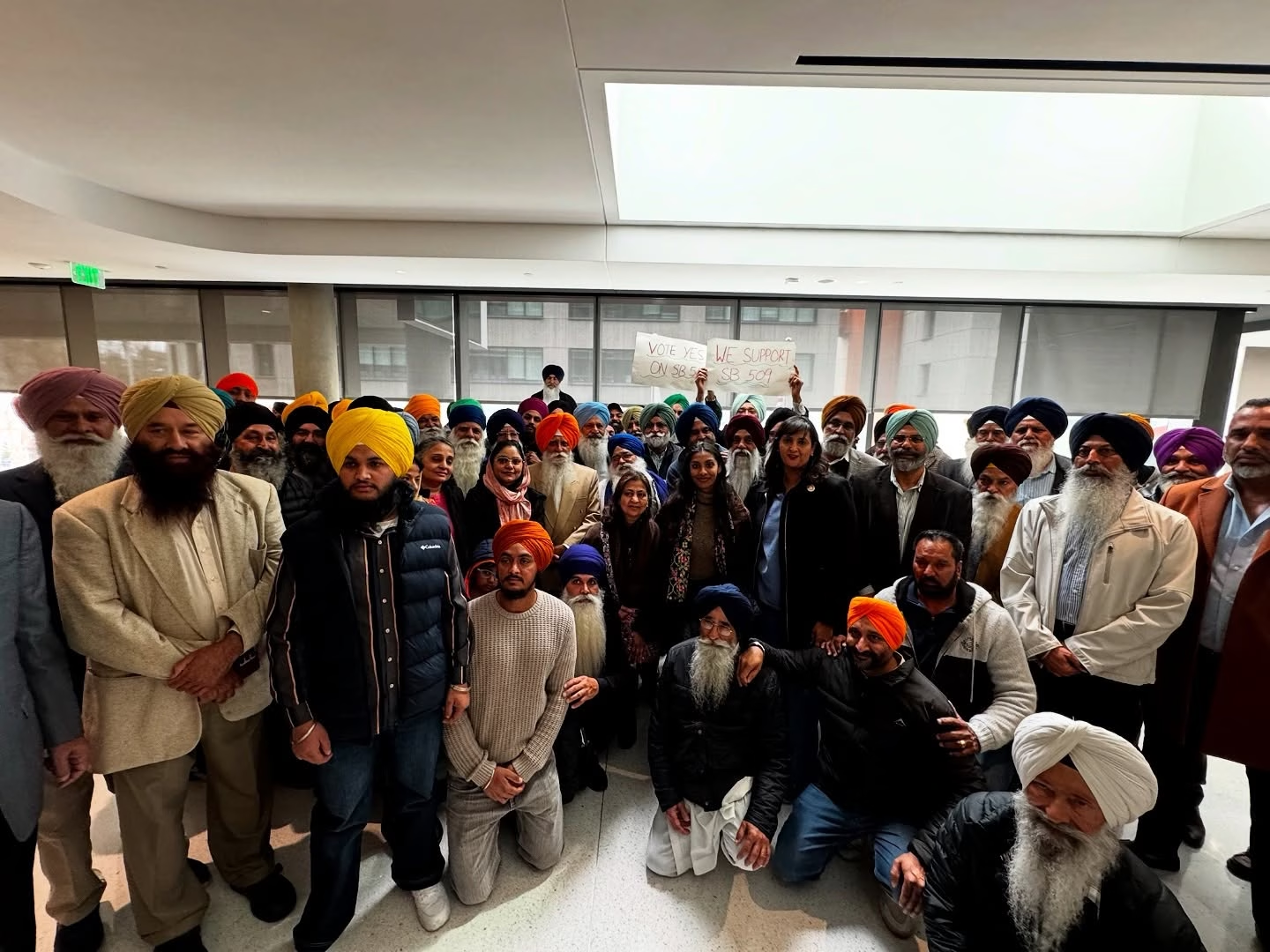On a bright August morning, Gurtej Singh Cheema, a 60-year-old retired clinical professor of internal medicine, started the day with prayer at his Sacramento home before heading to the California State Capitol to join over 150 Sikh Americans. His mission? To voice support for a state bill that holds significant safety implications for the Sikh community.
California, home to around 250,000 Sikhs, represents 40% of the nation’s Sikhs – a community that has resided in California for over a century. However, a recent surge in attacks and threats against Sikh activists in North America, which the US and Canadian governments have linked to India, has left the community on edge, doubting their safety and the ability of law enforcement to protect them.
This concern is precisely what a new anti-intimidation bill seeks to address. Sponsored by Democratic state Senator Anna Caballero, the bill would mandate California to train its police officers in recognizing and responding to “transnational repression,” or attempts by foreign nations to influence diaspora communities. This training would be crafted by the state’s Office of Emergency Services.
Anna Caballero, the bill’s author, asserts, “California cannot shield our most vulnerable communities without officers recognizing the threats. This bill is crucial for equipping law enforcement to spot foreign interference within our neighborhoods.”
Yet, the bill has stirred deep divisions among the Indian American community, which is already politically divisive. Prominent Sikh American groups like the Sikh American Legal Defense and Education Fund and the Sikh Coalition have thrown their support behind the measure. Additionally, organizations representing other major Indian faiths, including Hindus for Human Rights and the Indian American Muslim Council, and the California Police Chiefs Association have shown their backing.
Conversely, Hindu-American organizations such as the Hindu American Foundation and the Coalition of Hindus of North America, along with a Jewish group, Bay Area Jewish Coalition, and even a Sikh group, The Khalsa Today, stand opposed. Law enforcement agencies like the Santa Clara County Attorney’s Office and the Riverside County Sheriff’s Office have also raised concerns.
Critics argue that the bill could inadvertently target segments of the diaspora, such as Hindu Americans opposed to the Khalistan movement (a campaign for a separate Sikh state), potentially stirring more prejudice towards India and Hindu Americans.
Despite these concerns, the urgency for policy action was palpable at the state legislature on August 20, where some attendees had traveled over 380 miles from Los Angeles to participate. Cheema, representing the Capital Sikh Center in Sacramento, stressed the importance of such a bill to secure the Sikh community, stating, “If law enforcement doesn’t recognize threats within my community, then my safety could be at risk. This measure reassures me that my voice is being heard and that steps are being taken to protect my community.”
While the Federal Bureau of Investigation (FBI) defines transnational repression as actions by foreign governments targeting their diaspora and exile communities within the United States, the bill itself does not name a specific country. It aims to provide a broader framework for safeguarding immigrants and diaspora communities from harassment by foreign agents.
However, the context suggests that concerns over India’s alleged targeting of Sikh dissidents have played a significant role in catalyzing this legislation. In 2023, Canada officially accused India of orchestrating the assassination of Sikh separatist Hardeep Singh Nijjar in British Columbia, leading to strained relations. Similarly, US prosecutors have implicated Indian intelligence agencies in a plot to assassinate Gurpatwant Singh Pannun, a New York-based Sikh activist.
Vivek Kembaiyan from Hindus for Human Rights supports the bill, emphasizing the need for local law enforcement to be trained in investigating transnational crimes. However, others like Samir Kalra from the Hindu American Foundation worry about creating institutionalized prejudices. Kalra claims that most bill proponents are Indian-origin individuals who concentrate solely on India in their comments and press statements, indicating to him that the bill’s main objective is to target India and Indian Americans.
Despite these split opinions, some see the bill as a necessary shield for activists often harassed, threatened, or even attacked by foreign governments or their proxies in the US. For Professor Rohit Chopra, a communication specialist at Santa Clara University, even if the bill only serves as a deterrent, its positive impacts would outweigh any potential drawbacks.
For Cheema, the bill signifies more than just policy; it represents a critical acknowledgment and safeguard for the Sikh community on American soil. He believes that any group feeling threatened necessitates a communal effort to protect their people, providing comfort in the awareness that his voice is indeed being heard.
Source: https://www.aljazeera.com/features/2025/9/12/california-bill-against-foreign-hits-on-diaspora-splits-indian-americans?traffic_source=rss








